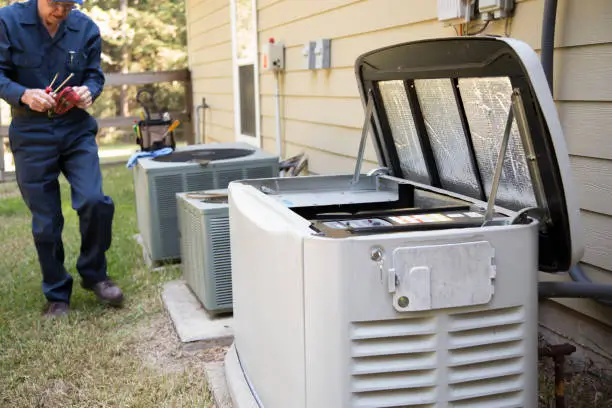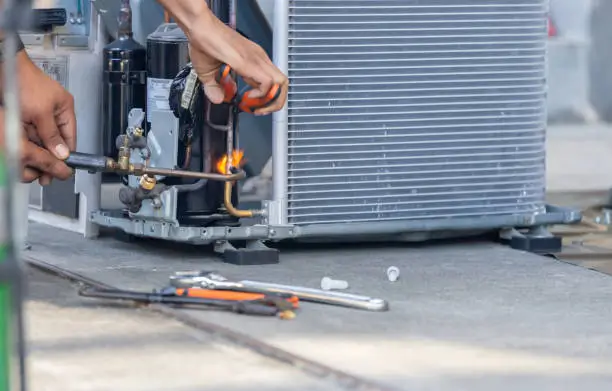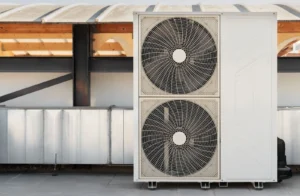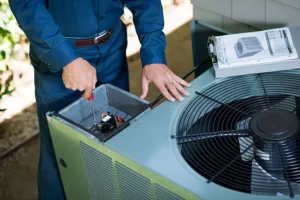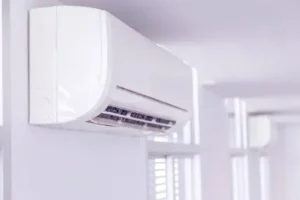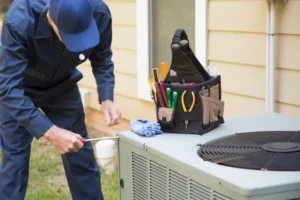Guide to handling AC emergencies in Waco’s hottest month.
A sudden AC breakdown can quickly turn your home into an oven. If your AC is not blowing cold air, you can’t afford to wait. This guide will walk you through the crucial steps to handle emergency AC repair situations and get your cooling system back online – fast.
Signs You’re Facing an AC Emergency
Not every cooling issue is a crisis, but some absolutely are. Here’s how to tell if it’s time to act fast.
- AC is running but not blowing cold air
- You smell burning or electrical odors.
- There’s a sudden spike in indoor temperature.
- The system won’t turn on at all.
- Strange noises (grinding, buzzing, or clanking) are coming from the unit.
These are all signs you need emergency AC repair, especially during peak heat when indoor temperature can rise to dangerous levels.
How Waco’s Heat Impacts Your AC
Waco’s brutal summer temperatures can push your cooling system to the limit. When your AC runs almost non-stop during August, wear and tear happen much faster. This intense usage is a major reason emergency AC repair calls spike during this time of year.
The hotter it gets outside, the harder your unit has to work to cool your home, especially if it’s older, poorly maintained, or not properly sized for your space.
Why AC Units Fail in Extreme Heat
An overworked system is among the most common reasons for your AC unit not blowing cold air. Here’s why extreme heat is especially tough on AC units.
- Overheating components: Motors and compressors can overheat and shut down.
- Frozen coils: Ironically, overuse can cause the coils to freeze up and stop cooling.
- Electrical overloads: Increased demand in your neighborhood can cause electrical disruptions.
- Clogged filters: Dust builds up faster with more usage, choking airflow.
Knowing these risks makes it easier to prevent breakdowns before they become emergencies.
What to Tell Your HVAC Technician When You Call
Making the most of your emergency AC repair call starts with giving the technician the right information. Here’s what you should be ready to share.
- Describe the symptoms: Is your AC not blowing cold air? Is it making noise? Is it short-cycling?
- Note when the issue started: Did it happen suddenly or gradually over a few days?
- Mention any recent storms or power surges: These often cause electrical issues.
- Check the thermostat and breaker: That info helps rule out simple causes.
- Tell them who’s in the home: If there are small children or elderly family members, emergency service is prioritized.
Clear communication helps your technician arrive with the right tools and parts, saving you time and discomfort.
How to Stay Cool While You Wait
If you’re waiting on help, use these tips to stay as cool and safe as possible:
- Close curtains and blinds. Block out direct sunlight.
- Use fans strategically. Place one near a bowl of ice for a DIY cooling breeze.
- Stay hydrated. Drink cold water regularly.
- Stick to one room. Seal off larger areas and rely on portable fans to maintain airflow where you’re staying.
- Avoid heat-generating appliances. No oven, no stove, no dryer.
These temporary fixes won’t solve the issue, but they can make the wait for your emergency AC repair more bearable.
How Emergency AC Technicians Handle Urgent Repairs
Dealing with a sudden AC failure can be overwhelming if you’re unfamiliar with how service calls usually unfold. Here’s what a typical visit looks like.
- Quick inspection: A technician will begin by reviewing your system’s components to uncover the issue causing the malfunction.
- Safety checks: Electrical components, refrigerant lines, and fans will be tested.
- Immediate repairs (if possible): If the fix is straightforward and parts are available, it will be handled on the spot.
- Recommendations: For major issues like a failed compressor, you’ll get clear repair vs. replacement options.
- Cooling test: Once repaired, your system will be tested to ensure it’s actually blowing cold air and functioning efficiently.
Expect technicians to act fast, especially during Waco’s hottest days. However, remember that clear communication and a safe environment help them work even faster when dealing with AC not blowing cold air.
Conclusion
A broken AC in August isn’t just uncomfortable. It can be a serious health risk as well. If your AC is not blowing cold air or you suspect a major system failure, visit On Point Service Company now for prompt and professional emergency AC repair. Our local team will be on the way to restore your comfort and peace of mind.

